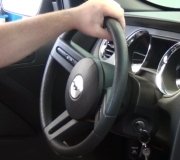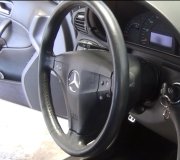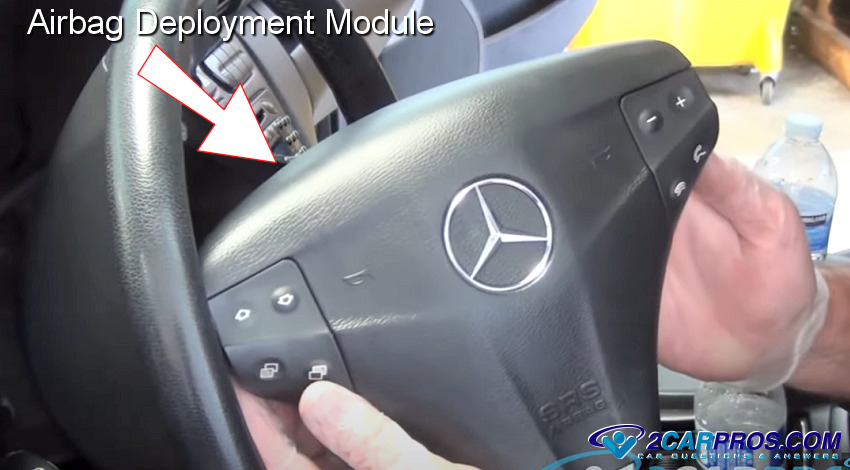What you did eliminates the tire as a suspect, and it does leave the inner CV joint. Most commonly you'll feel the steering wheel shake when turning and accelerating, as in when turning onto a street from a parking lot. The high torque causes the rollers in the inner joint to bind as they roll into and out of worn areas in the housing, and turning increases the distance those rollers move back and forth. At higher speeds this is usually less noticeable because the torque is relatively lower and the rollers can roll easier, and they're rolling faster. Think of the pendulum on a grandfather's clock. It has one speed it likes to swing at. Same with the engine and transmission. It has one speed it likes to shake back and forth at. At around 30 - 32 mph, the CV joint binds as it rotates at the same speed the engine likes to shake at, so it's more pronounced. When it binds, the shaft doesn't want to change length and angle freely, so it pushes and pulls on the spindle, and the spindle is attached to the steering linkage.
My suggestion is to just replace the entire half shaft assembly. The first problem is verifying the housing is worn is extremely difficult. You have to pull the joint apart, clean out the grease, then run your finger over the highly-polished rolling surfaces. If you feel the slightest irregularities, you really have junk. Most of the time they'll feel fine, then you have to clean off all the grease residue, then shine a light in there and look at those surfaces. You will see a very slight wave in the reflection, similar to looking at the dandy custom body work on a car where the grass reflects off it at a car show. Those reflections are often the only way to see any imperfections in the car, and the same is true for the CV joint housing.
The second problem is the replacement housing is usually only available from the dealer, and will be horribly expensive. A complete new joint from an auto parts store will cost a lot less, but considering the work and mess involved, new half shafts today are really inexpensive and the best value. A new shaft for my old Grand Caravan cost only $64.00 a few years ago. You can find rebuilt half shafts too, but then you run the risk of the rebuilder overlooking the same problem on the shaft you're getting. Those used to be a good deal until the cost of brand new ones came down so much.
Wednesday, May 22nd, 2019 AT 3:58 PM




